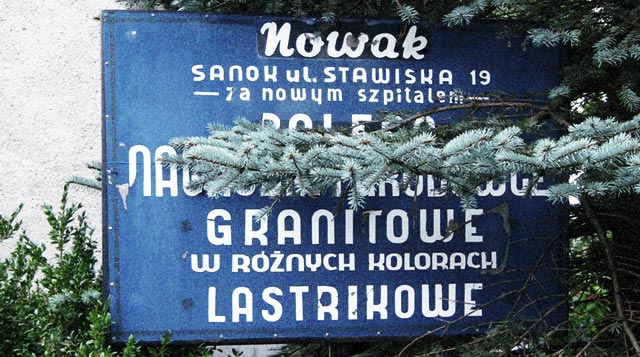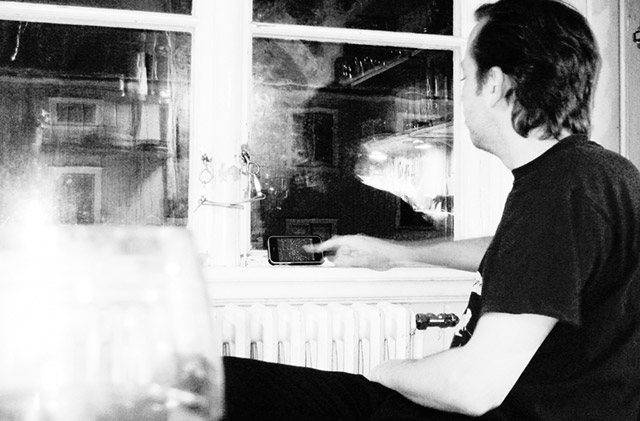A while back I read The day of the triffids, a 1951 novel by John Wyndham. It’s a post-apocalyptic tale where one accident leads to another: A cosmic light blinds the majority of the worlds population, and the poisonous, ambulating, and possibly intelligent plants which are being harvested for oil — the eponymous triffids — escape from captivity. So let’s loose a bunch of murderous plants on a blind humanity, leaving the few remaining sighted to help or ignore the suffering. Aaaand, action!
The book starts with Bill Masen waking up in his hospital bed, where he’s been treated for a triffid sting to his eyes. His head is bandaged, so he is unable to see the global borealis which almost everyone else is watching. As luck would have it, this spares his vision, and when the next day neither nurse nor doctor check in on him, he removes his dressing and discovers that everyone is blind but he. In the book, the panic that our protagonist feels is overwhelming, and I found myself mirroring Masens fright at things going bump in the night.

Much like in a zombie story, the humans who have been afflicted walk with outstretched arms, grasping for the non-affected; Wyndham might not have enjoyed killing off civilisation as we know it, but he sure enjoys traumatising his characters:
What was going on was a grim business without chivalry, with no give, and all take, about it. A man bumping into another and feeling that he carried a parcel would snatch it and duck away, on the chance that it contained something to eat, while the loser clutched furiously at the air or hit out indiscriminately. Once I had to step hurriedly aside to avoid being knocked down by an elderly man who darted into the roadway with no care for possible obstacles. His expression was vastly cunning, and he clutched avariciously to his chest two cans of red paint. On a corner my way was blocked by a group almost weeping with frustration over a bewildered child who could see but was just too young to understand what they wanted of it.
As it happens, BBC chose to interpret the book in a two part miniseries, and I had the first episode with breakfast. So far, it’s not all that impressive; The cold war story has become one of nature striking back, and man’s inhumanity to man is business as usual with some people being douche bags. Most of the immense tragedy — millions of Londoners blinded, fighting for food, reassuring their children — is almost glossed over.
No problem in the adaptation seems so big that it can’t be reasoned about; The sense of despair which enthralls the reader is missing, substituted with interpersonal disputes. The actors are more or less convincing, but the script lets them down. Eddie Izzard plays the evil guy, who appears in the book as a fascist character late in the story, but here is an egotistic opportunist, and the main foil for our dislike. We are left not judging the everyday humans who try their best but fail, but Izzards character Terrance who is stopping them from doing their best for his own selfish ends. The triffids become a backdrop in front of which Terrance and Bill fight over the girl, the bereaved radio journalist Jo Playton. The apocalypse happened and the guys are comparing dicks.

The most surprising anti-hero is played by Jason Priestly of 90210 fame, as a brash American who kidnaps the sighted so that they can guide the blind. At the end of the first episode he is redeemed and the audience no longer has to wonder if he’s a good guy or a bad guy. So despite good acting, there’s so little faith in the audience that the story of disaster and new beginnings, becomes one of action and getting the girl.
Of course it’s much more difficult to show someone’s internal struggle on the screen, where you can’t supplement it with your own imagination, but lets draw comparisons with another post-apocalyptic movie: In 28 weeks later there’s a scene where a main character abandons his wife, believing that she’s lost to the zombies. We see him run away from the house where she’s trapped, and he’s sobbing until out of breath — from fright of the zombies, his impotence in the face of the threat, his guilt over the abandon, his grief at losing his wife — leaving us not only conflicted about the moral correctness of his actions, but also with an understanding that there’s a limit to the human reasoning we can marshal under extreme circumstances.
Also, if you’re partial to graphic novels, you might have already heard of Walking Dead, which captures human emotions far better than either 28 days/weeks later or this adaptation of Day of the triffids.
—————-
Update: Part two was crap. The story jumped in time, seemed to skip most of the character developement which might have explained what the hell people are doing — Hey, he’s alive! He’s dead! I don’t trust them! I trust them! — and hopped from one action sequence to another, lest the audience lose interest. Even if you don’t compare it to the original story, this is just shit storytelling, despite some good acting. Booh!